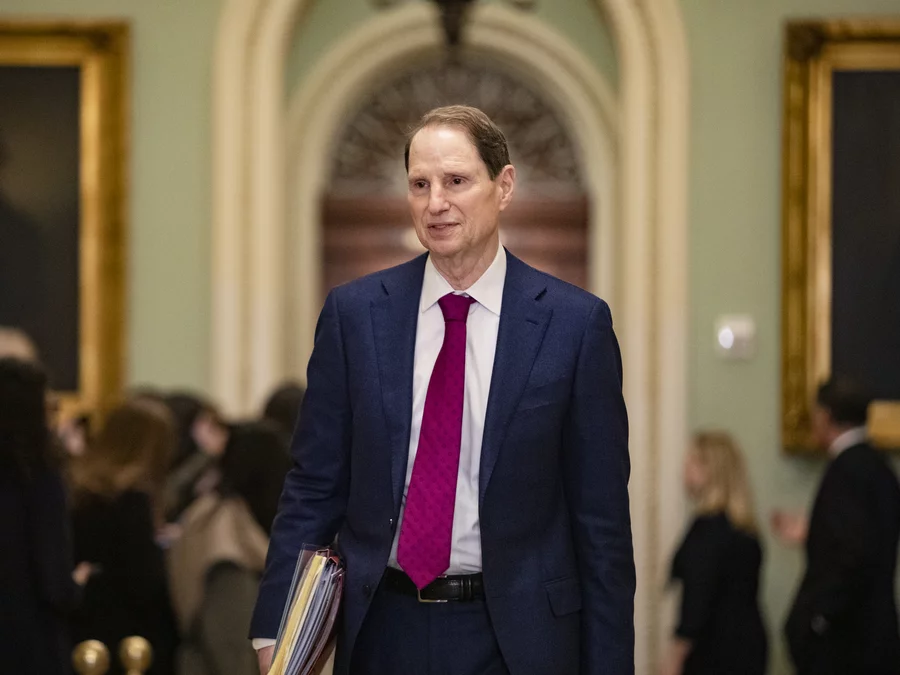Top legislators on the Senate and House tax writing committees have declared an agreement on a temporary extension of the child tax credit and a series of business tax incentives.
Chairman Ron Wyden of the Senate Finance Committee and Chairman Jason Smith of the House Ways and Means Committee brokered the framework. It would necessitate approval from both congressional chambers, facing a tight deadline with the 2023 tax filing season commencing on January 29.
After months of deliberation, the committees aspire to advance it as a standalone bill or potentially attach it to a stopgap spending bill. The independent Joint Committee on Taxation estimates the plan could amount to roughly $70 – 80 billion. Aides anticipate covering the cost by restructuring a COVID relief tax credit to save a similar amount in government revenue.
“This plan will benefit fifteen million children from low-income families. In the current political climate, it’s a significant opportunity to enact pro-family policies that advance the prospects of many children,” remarked Wyden in a written statement on Monday.
Entitled the Tax Relief for American Families and Workers Act of 2024, the legislation extends the child tax credit for three years, enabling families with multiple children to leverage the credit. The prevailing cap for the refundable child tax credit at $1,600 would be elevated to $1,800 in tax year 2023, $1,900 in tax year 2024, and $2,000 in tax year 2025. Adjustments for inflation are slated to commence in 2024.
The U.S. Census Bureau’s findings indicate that the child tax credit in the 2021 COVID relief bill, the American Rescue Plan, substantially alleviated child poverty. Many Democrats advocated for a new version modeled on that bill, which was fully refundable.
The path forward remains uncertain. While the legislation was negotiated by two prominent tax writers, there are concerns about garnering sufficient support for its passage. House Democrats, before the deal details were unveiled, expressed apprehensions, particularly regarding the child tax credit. Connecticut Democratic Rep. Rosa DeLauro suggested the deal favored corporations too heavily, potentially leaving millions of children underserved.
Senate Majority Leader Chuck Schumer endorsed the deal, emphasizing its bipartisan nature and its positive impact on the child tax credit, affordable housing, and U.S. business competitiveness against the Chinese Communist Party. Schumer urged Republican colleagues to collaborate for progress.
Senator Mike Crapo, the top Republican on the Finance Committee, viewed the bill as a “thoughtful starting point” but did not explicitly endorse it. He emphasized the need for bipartisan collaboration, considering the impending tax filing season.
Several Senate Democrats, including Senator Michael Bennet from Colorado, commended the progress made in the deal. Bennet acknowledged the significance of the 2021 credit and expressed optimism that the new deal would benefit a significant proportion of children previously excluded from the full Child Tax Credit.
The business tax credits incorporated in the deal encompass provisions for immediate deduction of research and development costs for corporations, 100% expensing of equipment investments, and increased write-offs for small businesses. The bill also aims to enhance affordable housing supply by reinstating a credit for low-income housing.
With provisions related to small business expensing and Taiwan being permanent, most business tax measures are set to expire in three years. Business Roundtable CEO Joshua Bolten endorsed the bill, emphasizing its potential to boost domestic investment, innovation, and job creation.
Lawmakers from both parties have advocated for the reinstatement of the tax deduction for state and local income taxes, capped at $10,000 by the 2017 tax law and scheduled to expire in 2025. However, there is no consensus on including it in the new tax package.
